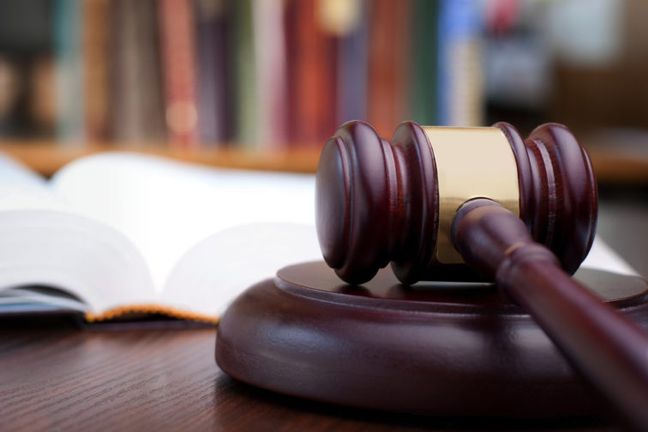With the increasing use of the internet and postings to Facebook, Twitter, Blogs, and other electronic sources, do reposters and republishers who forward and share links to internet content need to be worried about potential liability for defamation? The short answer is no as long as no material changes or defamatory modifications were made to the original content.
The Communications Decency Act (“CDA”) of 1996, Section 230 (codified at 47 U.S.C. section 230) is a key piece of legislation for protecting freedom of speech on the internet. 47 U.S.C. section 230(c)(1) states: “No provider or user of an interactive computer service shall be treated as the publisher or speaker of any information provided by another information content provider.” Pursuant to section 230(e)(3), “[n]o cause of action may be brought and no liability may be imposed under any State or local law that is inconsistent with this section.”
One is immune under the CDA if (1) he is a user of an interactive computer service, (2) he did not act as an information content provider with respect to the information that was posted, and (3) the asserted claims treat him as a publisher or speaker of information originating from a third-party. (MCW, Inc. v. Badbusinessbureau.com, LLC (N.D. Texas, 2004 WL 833595).)
By its terms, section 230 exempts internet users from defamation liability for republication. (Barrett v. Rosenthal (2006) 40 Cal. 4th 33, 62.) These provisions have been widely and consistently interpreted to confer broad immunity against defamation liability for those who use the Internet to publish information that originated from another source. Id.
The U.S. Court of Appeals for the Ninth Circuit held when a user of an online bulletin board posted an e-mail that she had received from a third party, which allegedly defamed an art dealer, the woman who posted the e-mail message could not be held liable for the content of the e-mail that “originated from another content provider.” (Batzel v. Smith, 333 F.3d 1022, 1034-35 (9th Cir. 2003) (posting accusing plaintiff of art theft was not created or developed in whole or in part by website moderator, who added a statement that “the FBI has been informed of the contents of [the] original message”); see also Phan v. Pham (2010) 182 Cal.App.4th 323 (holding that a person who forwards an email, introducing it with language of his own, is entitled to immunity under § 230 for the allegedly defamatory content in the forwarded email).)
In Phan v. Pham (2010) 182 Cal.App.4th 323, the court examined the question: “What happens when you receive a defamatory e-mail and you forward it along, but, in a message preceding the actual forwarded document, introduce it with some language of your own?” The Court of Appeal held “defendant Pham made no material contribution to the alleged defamation in the e-mail he received from Nguyen Xuan Due. His original language merely said, in essence: Look at this and ‘Everything will come out to the daylight.’ All he said was: The truth will come out in the end. What will be will be. Whatever. That is, the only possible defamatory content is to be found in the e-mail was the original content received by defendant Pham from Nguyen Xuan Due. Nothing ‘created’ by defendant Pham was itself defamatory.” (Id. at p. 328.)
The defendant in Phan had no connection to the creation of the allegedly defamatory email, and therefore the act of forwarding the email, even with some commentary, did not expose him to liability for defamation because the Communications Decency Act (“CDA”) applied.
Pursuant to California law, there is a single publication rule for defamatory publications. (Traditional Cat Association v. Gilbreath, 118 Cal.App.4th 392, 395, 399, 401 (2004).) Other jurisdictions hold the same when the republisher does not add his own material or defamatory commentary. (See Mitan v. A. Neumann & Assocs., LLC, Case No. Civ. 08-6154, 2010 WL 4782771 (D.N.J. Nov. 17, 2010) (holding that person who forwarded an e-mail to a group of recipients, with an introductory statement, was entitled to § 230 immunity: “as the downstream Internet user who received an email containing defamatory text and ‘simply hit the forward icon on [his] computer,’ … Neumann’s acts are shielded by the CDA”); Vasquez v. Buhl, No. FSTCV126012693S, 2012 WL 3641581 (Conn. Super. Ct. July 17, 2012) (holding that an editor at CNBC.com was immune from defamation liability under § 230 when he posted a link to a defamatory website with an introductory message “I don’t want to steal Buhl’s thunder, so click on her report for the big reveal”).
Overall, those who repost and forward potentially defamatory statements may not be liable for subsequent defamation as a republisher of defamatory content should no material alterations or new defamatory assertions be added to the original content.

 Author: Terra Affourtit
Author: Terra Affourtit
 Cannabis Workers Allege Quota to Trim 4 Pounds a Day Violates the California Labor Code
Cannabis Workers Allege Quota to Trim 4 Pounds a Day Violates the California Labor Code
 The Ninth Circuit Reminds Us: Every Word Matters
The Ninth Circuit Reminds Us: Every Word Matters
 NO WAY, PRO SE! The Consequences of Abusing the Judicial System as a Pro Se Litigant in Colorado
NO WAY, PRO SE! The Consequences of Abusing the Judicial System as a Pro Se Litigant in Colorado
 Victim of Financial Mismanagement or Unlawful Retaliation? New Jersey City University Program Founder Claims School Retaliated After Reporting Alleged Sexual Harassment
Victim of Financial Mismanagement or Unlawful Retaliation? New Jersey City University Program Founder Claims School Retaliated After Reporting Alleged Sexual Harassment
 “Real Housewives” Gets a Reality Check
“Real Housewives” Gets a Reality Check
 Missing a Chapter: Insufficiency of Expert Deposition Testimony in Medical Malpractice Litigation
Missing a Chapter: Insufficiency of Expert Deposition Testimony in Medical Malpractice Litigation
 Crash Course: Why Summary Judgment Misses the Mark in Illinois Multi-Cause Limousine Crash Collision
Crash Course: Why Summary Judgment Misses the Mark in Illinois Multi-Cause Limousine Crash Collision
 Bitter Truths: Lead, Cadmium, and Defective Pleadings in California Chocolate Class Action
Bitter Truths: Lead, Cadmium, and Defective Pleadings in California Chocolate Class Action
 The Law of Unintended Consequences: Including Insurance Brokers in Litigation Strategy Communication May Waive the Attorney-Client Privilege
The Law of Unintended Consequences: Including Insurance Brokers in Litigation Strategy Communication May Waive the Attorney-Client Privilege
 When the Jury Believes Your Injury is Permanent, but Gives You Nothing for It
When the Jury Believes Your Injury is Permanent, but Gives You Nothing for It
 Colorado Case Law Update
Colorado Case Law Update
 Arizona Case Law Update
Arizona Case Law Update
 Colorado Case Law Update
Colorado Case Law Update
 The Emotional Distress Catch-22
The Emotional Distress Catch-22
 Stop Burning Your Core! Ensure Your Gym Rats Leave With Contracts
Stop Burning Your Core! Ensure Your Gym Rats Leave With Contracts